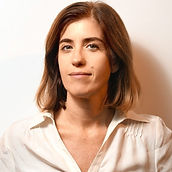
Keynote Speakers

Prof. Saverio Spagnolie
University of Wisconsin-Madison, USA
Saverio Spagnolie is a Professor of Mathematics at the University of Wisconsin-Madison with a courtesy appointment in Chemical and Biological Engineering. He earned his PhD in Mathematics from the Courant Institute in 2008 and held postdoctoral positions in Mechanical and Aerospace Engineering at UC San Diego and in the School of Engineering at Brown University before joining the faculty at UW-Madison. His research focuses on the dynamics of soft and active matter in viscous and complex biological environments, combining novel numerical method development with classical techniques of applied mathematics.

Prof. Stefania Cherubini
Politecnico di Bari, Italy
Stefania Cherubini is Full Professor at the Polytechnic University of Bari, Italy. Her research focuses on understanding and modeling the dynamics of instabilities and coherent structures in transitional and turbulent flows. The applications of her research include drag reduction through rough surfaces and energy harvesting from flows.

Dr. Megan Davies Wykes
University of Cambridge, UK
Dr Megan Davies Wykes is the Liz Acton Associate Professor in the Department of Engineering, University of Cambridge and Murray Edwards College. Her research covers various problems in fluid dynamics, using experiments and theoretical models to understand geophysical and buoyancy-driven flows. Her research has improved our understanding of ice melting, disease transmission, pollution in cities and low energy ventilation.
Previously, Megan worked for the Managing Air for Green Inner Cities (MAGIC) project, examining the interaction between building ventilation systems and their surroundings, at the Department for Applied Mathematics and Theoretical Physics (DAMTP) at the University of Cambridge.
Megan was a Courant Instructor at the Applied Mathematics Laboratory, based in the Courant Institute, New York University, where she was also a Fulbright Scholar. There she investigated how buoyancy-driven flows interact with dissolving surfaces. She also made discoveries related to the self-assembly and steering of micro-scale swimmers.
Megan's PhD was on turbulent stratified mixing and the Rayleigh-Taylor instability, supervised by Dr Stuart Dalziel. She did this research at DAMTP, University of Cambridge.

Prof. Frédéric Dias
University College Dublin, Ireland
Frederic Dias received a PhD in Civil and Environmental Engineering from the University of Wisconsin, Madison, USA, in 1986. He is affiliated both with Ecole normale supérieure Paris–Saclay (ENSPS) and University College Dublin (UCD). He leads the joint ENSPS/UCD wave group. In 2012, he received an advanced grant from the European Research Council (ERC) to work on extreme wave events. In 2014, he received a proof of concept grant from the ERC to work on extreme wave measurement. In 2019, he received a second advanced grant from the ERC to work on wave breaking. In 2023, he received a second proof of concept grant from the ERC to use wireless wave sensor technology deployed on a connected buoy to transmit raw data of the sea state at a given location.
Prof. Frédéric Dias was elected as a member of the Royal Irish Academy in 2016, of the Academy of Europe in 2017 and of the Norwegian Academy of Science and Letters in 2019.

Prof. George Haller
ETH Zurich, Switzerland
George Haller is a professor of Mechanical Engineering at ETH Zürich, where he holds the Chair in Nonlinear Dynamics and heads the Institute for Mechanical Systems. His prior appointments include tenured faculty positions at Brown, McGill and MIT. He also served as the inaugural director of Morgan Stanley’s fixed income modeling center. Professor Haller is a recipient of a Alfred P. Sloan Fellowship in mathematics, an Thomas Hughes Young Investigator Award of the ASME, a School of Engineering Distinguished Professorhip at McGill, the Stanley Corrsin Award of the APS, and the Lyapunov award of the ASME. He is an external member of the Hungarian Academy of Science and an elected fellow of SIAM, APS and ASME. His research focuses on nonlinear dynamical systems with applications to mechanical vibrations, coherent structures in turbulence, and data- and equation-driven model reduction for physical systems. He has authored three monographs in these areas.

Prof. Camille Duprat
Institut Polytechnique de Paris, France
Camille Duprat is Professor of Mechanics at École polytechnique. She obtained her PhD in Fluid Mechanics at Sorbonne Université. After postdoctoral stays at Princeton University and ESPCI Paris, she joined the faculty at Ecole polytechnique in 2013. Her research focusses on fluid structure interactions at small scale, in particular in situations where fluid-fluid interfaces are important or in systems where viscous forces dominates. She is particularly interested in fiber-liquid interactions, for example elastocapillary effects in wet textiles or the transport of flexible fibers in flows.





